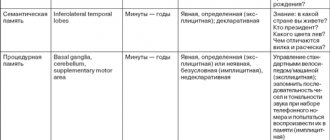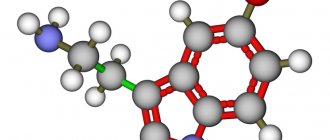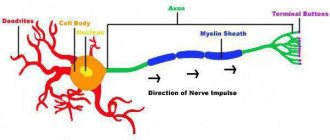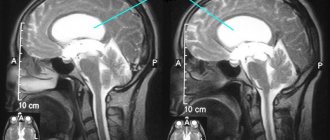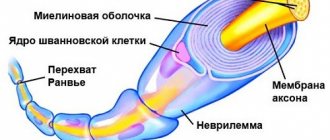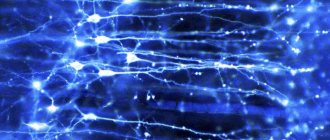Medical information is reliable Checked by Shaidullin Renat Flyurovich
Hypomania is a mood disorder characterized by mild mania in the absence of hallucinations, delusions, and other psychotic symptoms. Patients with hypomania often do not see a doctor because they consider themselves healthy. Treatment of the disease includes psychotherapy and medications.
Dr. Isaev’s clinic uses a full range of traditional therapeutic techniques and proprietary developments. Each patient of a medical institution undergoes a course of treatment for hypomania, tailored to the individual characteristics of the individual and the clinical manifestations of the disease.
Where does the disease called hypomania come from?
There are many reasons that can provoke the development of the disease. Psychiatrists include the following as the main prerequisites for the development of hypomania:
- Organic changes in the brain. For example, traumatic brain injuries, strokes and others.
- Chronic stress, which is accompanied by constant nervous tension.
- Taking narcotic drugs and psychoactive substances with stimulant effects.
- Drinking large amounts of psychostimulant drinks. These include energy drinks, coffee, alcohol, and strong brewed tea (chifir).
- Independent and abrupt refusal of antidepressants prescribed by a doctor after taking them for a long time.
- Endocrine disorders such as menopause, postpartum depression and hyperthyroidism.
It is not always possible to determine the specific cause of the pathology. Psychiatric clinic specialists note that some patients have a hereditary predisposition to hypomania. It manifests itself in familial cases of the disease.
Types of violations
In psychiatry, there are several types of hypomania. Depending on the severity of symptoms, there are:
- A latent variant of the disease, when the symptoms are mild or the patient has concomitant mental illnesses. This makes it difficult to make a timely diagnosis.
- Pure hypomania occurs with a characteristic clinical picture.
When talking with the patient, the doctor can determine the variant of hypomanic disorder based on the predominant symptoms:
- simple hypomania does not have any pronounced clinical manifestations;
- irritable (expansive) – manifested by frequent dissatisfaction and irritability of a person without significant reasons;
- adventuristic - characterized by the patient’s desire to leave home, engage in new activities, plunge headlong into a new job, open his own business in the absence of money;
- dysphoric hypomania - accompanied by frequent mood swings and intolerance towards other people;
- Querulant form - the patient constantly fights for his rights, there are no prerequisites for this.
Clinical manifestations
The symptoms of the disease depend on the form of hypomania. Common manifestations of pathology include:
- Excessive irritation or euphoria, which is not associated with any circumstances in a person’s life and persists for several days in a row.
- Acceleration of the rate of speech and increased desire of the patient to talk with people around him.
- Behavior may be illogical. Some people with hypomania commit reckless acts, especially with the opportunistic variant of the pathology.
- The duration of sleep at night decreases and can reach 2-3 hours. The patient feels well and is very active during the day.
- Familiarity in communication with other people, erasing the norms of respect for age and morality.
- Increased libido, a desire for sex that cannot be suppressed.
- Changes in eating behavior in the form of bulimia or anorexia.
- Traits that were previously absent may appear in the character of a person with hypomania. They are too hypertrophied to go unnoticed.
If the disease appears against the background of disturbances in the endocrine system, it is accompanied by additional symptoms: hand tremors, fever, increased sweating, menstrual irregularities and causeless weight gain. In childhood, patients with hypomania are dominated by general hyperactivity and impulsiveness of actions. If the symptoms listed in this article appear, you should immediately contact a psychiatrist.
Diagnosing hypomania
A psychiatrist diagnoses hypomania. All patients with symptoms of pathology are recommended to consult with an endocrinologist, neurologist and narcologist to determine the causes of the disease.
The main method of examination is the collection of existing complaints with clarification of personal history and heredity. The doctor talks with the patient and his relatives or close people, since the patient himself may deny any symptoms.
Laboratory and instrumental examination methods are prescribed to determine the causes of hypomania.
Can be carried out:
- Biochemical blood test to determine the level of thyroid hormones and female sex hormones. If abnormalities are detected, the patient is shown an additional examination - ultrasound of the thyroid gland and other diagnostic methods.
- Computed tomography or magnetic resonance imaging to evaluate the condition of the brain. Both methods make it possible to identify organic changes in its structures.
- EEG to detect abnormalities in brain activity. It is performed for patients with signs of hypomania in adults and children.
Only a professionally trained doctor interprets research results. Incorrect diagnosis can lead to ineffective therapy.
Making the correct diagnosis
First of all, the doctor interviews the patient, who must describe his condition and its difference from when, in his opinion, there were no changes in memory.
Also, various tests are always used in order to more reliably detect the objective presence of violations. Tests with pictograms, memorizing text, as well as the “10 words method” proposed by the Soviet psychologist Alexander Luria are common.
The following studies are prescribed:
- the neural activity of the brain is studied using EEG;
- carried out (computed tomography) and MRI (magnetic resonance imaging);
- Ultrasound of organs;
- electrocardiogram.
Urine and blood tests are also prescribed to verify the absence or, conversely, the presence of somatic diseases, which could lead to a failure.
It is extremely important for the doctor to make sure that the patient has hypomnesia and not some other disease, especially of a mental nature. For example, depression and neurosis have the same symptoms, but their treatment has nothing to do with the treatment of hypomnesia.
Treatment of hypomania in Moscow
The main task of a doctor in a psychiatric department is to identify the primary disease and eliminate it. Therefore, treatment depends on the identified causes of hypomania. If it develops while taking psychoactive drugs, detoxification treatment is prescribed, aimed at removing them from the body. For endocrine pathologies, medications are used to correct the functioning of the endocrine glands.
The symptoms of hypomania can be eliminated with the help of medications. When treating hypomania in Moscow, specialists at Dr. Isaev’s Clinic use medications from the following pharmacological groups:
- Typical and atypical antipsychotics that normalize the patient’s activity and his perception of the world around him. Prescribed from minimal dosages with a gradual increase to therapeutic doses.
- Antipsychotics – eliminate the symptoms of hyperactivity and increased excitability of the patient. Used for severe clinical symptoms.
- Antidepressants normalize mood and prevent the progression of the disorder. Requires long-term use.
In addition to taking medications, psychotherapy is indicated for patients with hypomanic states. Psychotherapeutic assistance allows us to identify problems in a person’s mental state and correct his perception of the world around him. Psychotherapy in the treatment of hypomania can take place in the format of individual meetings with a specialist and group sessions with other patients. Combination therapy is most often used.
For prevention purposes
Remember that memory performance always depends on the general condition of your body.
Therefore, keep an eye on it, do exercises, develop your thinking, solve problems and memorize texts, and then you can count on a very good memory. In addition, it is necessary to avoid stressful situations and minimize possible nervous breakdowns. If you notice any changes in your mental state, or there are personal problems in your life that constantly bother you, then do not be lazy and contact a psychotherapist about them.
Together you can solve everything that bothers you before it begins to affect the state of your body, including memory.
Complications
A person with hypomanic disorder may not seek medical help for a long time, regarding irritability and hyperactivity as character traits. With a late start of treatment for hypomania, the patient develops additional disorders:
- General fatigue associated with overwork due to lack of sleep. This leads to a loss of the ability to concentrate on simple tasks and memory impairment. During the day there is constant drowsiness.
- Chronic overeating or undereating can lead to obesity or malnutrition. Against this background, the development of vitamin deficiencies, frequent infectious diseases and exacerbation of chronic pathologies is possible.
- Against the backdrop of frivolity and extravagance, patients often have financial problems. They are often fired from their jobs and expelled from educational institutions. Close people stop being friends with them, and those around them try to completely reduce contacts to a minimum. When apathy occurs, a person is unable to cope with these situations.
- Periods of activity are followed by depression, which can persist for several months. A depressive state increases the adverse effects of hypomania and negatively affects a person's prognosis.
Complications of a hypomanic state occur more often in children and people with a dysfunctional lifestyle.
Cognitive functions. What is this?
All cognitive functions are divided into memory, attention, speech, praxis (purposeful activity), gnosis (orientation, recognition of place and time), thinking. The capabilities of cognitive functions form the personality of an individual, determine success in education, professional activities, and other areas of life.
There are 4 main interacting components of cognitive functions : 1. perception of information (visual, auditory, tactile gnosis, smell, taste, etc.); 2. processing and analysis of information (“executive” functions), which include voluntary attention, generalization, identification of similarities and differences, formal logical operations, establishment of associative connections, drawing conclusions. This also includes thinking and intelligence, which imply, among other things, the ability to adapt in society, behave adequately in a changing environment, building a program of behavior, adjusting one’s actions based on the appropriateness of the moment; 3. memorization and storage of information (memory) and 4. exchange of information, construction and implementation of a program of action - “expressive” functions, which include speech, skills of targeted motor activity (praxis) Memory is the ability of the central nervous system to assimilate new information, store it and repeatedly use in the process of life. Memory consists of stages: memorization (retention), storage of information and reproduction of information. In vascular cognitive disorders, information reproduction suffers to a greater extent, while memorization and storage may be preserved. Semantically mediated “cues” during testing help patients reproduce information. In neurodegenerative diseases (AD), memory is primarily affected. There are individuals with hypo- or hypermnesia, with innate “mnestic giftedness”. There are patients who are sensitive to interference (distractions), and there is a primary weakness of memory even without interference. When the reproduction of information is impaired, pseudo-reminiscences (minor inaccuracies in details), contamination (inclusion of some memories in the structure of others), confabulations (events that do not take place are remembered) are distinguished. HYPOMNESIS is divided into: Fixation (the period of time corresponding to a certain event is forgotten), antero- and retrograde; progressive and non-progressive
Disease prevention
There is no specific prevention of hypomania. Psychiatrists recommend changing lifestyle to prevent the development of pathology. The recommendations are general:
- Avoid stress at work and in your personal life.
- Exercise regularly. Physical activity must be adequate for the person’s level of training.
- Normalize nutrition by increasing the consumption of fresh vegetables, fruits, berries, milk and fermented milk products, lean meats and fish. These products contain a large amount of microelements and vitamins necessary to maintain health.
- Eliminate bad habits, including smoking, drinking alcohol and using drugs.
- Use any medications only as prescribed by a doctor;
- When using psychotropic medications, their withdrawal should be agreed with a specialist.
If any signs of hypomania appear, it is recommended to consult a doctor. This makes it possible to identify pathology at an early stage of development, when non-drug approaches to treatment are highly effective.
Hypomnesia
Hypomnesia is a decrease in various forms and types of memory, often progressing at different rates to the degree of amnesia, including systemic. The increase in hypomnesia, points out V.M. Bleicher, is characterized by a well-known sequence. Initially, the weakening of memory concerns voluntary reproduction. Then the retention of information in memory comes to the fore, and only after that does the memorization of current impressions suffer.
The disorder primarily concerns reference information that cannot be systematized and included in the patient’s existing cognitive structures (names, surnames, titles, terms, dates, phone numbers, faces, etc.). Accordingly, the clinical diversity of hypomnesia is quite large. It is important to note that the first signs of memory decline are determined only subjectively; testing in this case does not give definite results. It is also worth paying attention to the fact that by memory loss, patients often mean attention problems. Clinically, the following variants of hypomnesia are more or less clearly distinguished.
| | If there are signs of hypomnesia, we recommend that you contact a psychiatric clinic and undergo diagnostics. |
1. Disorder of selective reproduction - a decrease in the ability to quickly recall well-known facts. For example: “The name of a long-known person flew out of my head. Other names appear in your head, any, but not what you need. Sometimes it becomes so inconvenient that I don’t engage in conversation or try not to mention this name... I couldn’t suddenly remember my own phone number... My memory jammed, I suddenly forgot the name of my street... My memory is slipping, they asked my daughters’ birth dates, but I’m lost, I can’t remember , and that’s all here... At the lecture I began to forget some terms, they’re floating around my tongue, but I can’t remember... My memory for faces has become worse, I meet a person, I know that I should remember him, but I can’t remember who he is.” Active efforts to remember forgotten things are often unsuccessful; they seem to only interfere with reproduction, diverting attention from the search for the key stimulus. Somewhat later, the forgotten memory appears in consciousness as if by itself. In some cases, this decrease in memory is combined with a clearly presented symptom of thought loss.
2. Anekphoria - the inability to remember well-known things without outside help. It resembles the previous disorder in that the patient temporarily or forever seems to lose the skill of remembering, but it looks a little different. Thus, a patient, after suffering meningoencephalitis, complained of memory loss and fear of going crazy: “I forgot the names of the people closest to me, not to mention my acquaintances, I can’t remember what people I know look like, where I live, my phone number and much more.” , what I know, I should know, my thoughts are always spinning about the fact that there is no memory. It seems like I’m about to remember it, but I can’t.” Memories gradually returned to the patient, but only after she was helped by reminders. After that, she could independently remember what she had forgotten.
3. Decrease in chronological memory - weakening of the ability to remember, as well as to recall the location and sequence of events in time, including events of personal biography.
4. Decreased spatial memory - weakened ability to remember and reproduce spatial relationships. For example, remember and remember the route of transport in the city, especially if it is an unfamiliar city.
5. Decrease in musical memory - weakening of the ability to remember and reproduce musical images. Complaints about this can be found among musicians.
6. Decreased memory for fresh thoughts - a weakening of the ability to memorize and recall the fruits of one’s own creative imagination, which is especially painful for people of a creative nature.
7. Decreased memory for faces - a weakening of the ability to remember and remember the faces of surrounding people, as well as their images. Realizing this fact, the patient, for example, begins to greet everyone he meets, assuming that in this place there is a high probability of meeting a familiar person. He also notices that in a certain place he recognizes a familiar person, but may not recognize him somewhere on the side.
8. Decreased memory for colors - weakened ability to remember and remember the colors of objects (color of eyes, hair, clothes, etc.). The list of hypomnesia options can be continued further.
9. Decreased memory for what has been done - a weakening of the ability to remember and remember what has already been done or said. Such patients can talk about the same thing several times to the same person, make the same purchase, wash themselves again, wash the floor in the apartment, etc.
10. Dysmnesia - disproportionality in the degree of memory loss for certain impressions. Most often, this is exactly what happens when diffuse memory loss unequally affects one or another type of memory. Symptoms of local hypomnesia may indicate the possibility of developing systemic amnesia in the future.
11. Moral hypomnesia - decreased ability to remember and update ethical norms and rules of social behavior. Characteristic of some types of psychopathy. A critical attitude towards hypomnesia, as well as towards systemic amnesia, usually remains. Moreover, awareness of hypomnesia can be quite painful. Patients often take measures to hide the fact of memory loss from others and somehow compensate for it (writing notes, knitting “knots for memory”, reminders with crosses on the palm, etc.; some patients write and leave inscriptions on sheets of paper in a visible place about what they should do).
Hypomnesia is observed in states of asthenia, adynamia, apathy, abulia, depression, stupor, as well as in the clinical picture of local and diffuse brain damage of various origins. Age-related memory decline is not hypomnesia, although the distinction is difficult to make.
Back to contents
Questions and answers
I am subject to frequent and sudden mood swings, I can move from joy to irritability and even aggression. Is this a symptom of hypomania?
Only a doctor can make a correct diagnosis based on examination, interviews with the patient and his relatives, as well as visual and laboratory diagnostic methods. Contact our clinic to get tested. We have been treating hypomania in Moscow for over 10 years. During this time, good practice has been developed, thanks to which we can return a person to a full life.


